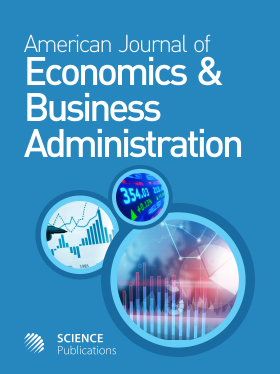Determinants of Outward Foreign Direct Investments from Small Island Developing States
- 1 University of the West Indies, Jamaica
Abstract
Problem statement: Although there is a burgeoning literature on the rise of Multinational Enterprises (MNEs) from developing economies, comparatively less work exists on MNEs from small, developing economies. Given the precipitous rise in the level of outward foreign direct investments from small, economies, it is still not clear in the academic literature and for policy purposes, those factors in the home environment which influence the rise of these multinational enterprises from these smaller economies. This study aimed to determine those economic and social factors at home that are most important in influencing the level of outward foreign direct investments from Small, Island Developing States (SIDS)? Approach: To achieve the research objective, a literature review was first conducted to identify those factors that were commonly cited as critical for motivating domestic firms to be engaged in outward foreign direct investments. To test which of these factors were most influential in the case of small island developing economies, secondary data on each of the variables identified from the literature were collected from sources such as: International financial statistics, the world investment report, the world economic outlook, transparency international and, the world development indicators. These data were used to build a 5 year panel dataset. The panel data set consisted of 5 years of data from 1998-2002, for 15 small economies which are defined as SIDS by the United Nations classifications. These data were analyzed using the multivariate regression model. The results from the model were used to determine which factors was most influential in motivating domestic firms to get involved in outward foreign direct investments. Results: The results revealed that the level of corruption at home (p = 0.01), the per capita income (p = 0.00) and, level of economic growth at home (p = 0.00) were most influential in motivating domestic firms to be involved in outward FDI from small island developing states. These findings reflected that both economic and social factors were important in influencing the level of outward FDI from SIDS. Conclusion: These results indicated that if policy makers in SIDS want to encourage more domestic firms to get engaged in outward foreign direct investments, they needed to put policies in place that will grow the local economy. For business practitioners, the results indicated that there will be an increased need for more strategic thinking because more domestic firms will have to be engaged in international business if they are to survive the high level of competition in the small markets in small economies.
DOI: https://doi.org/10.3844/ajebasp.2009.47.56

- 5,918 Views
- 4,714 Downloads
- 19 Citations
Download
Keywords
- Outward foreign direct investments
- small island developing states
- panel data
- multivariate regression
